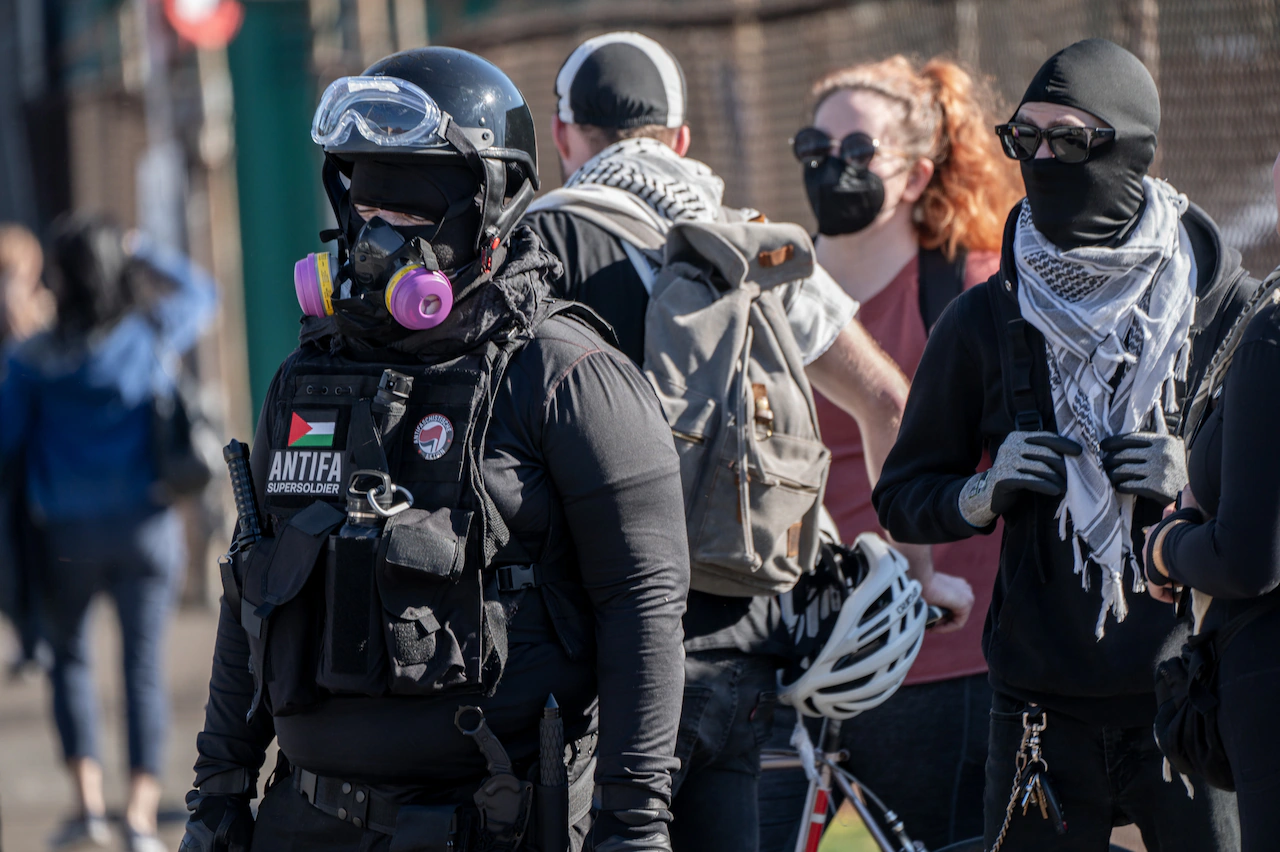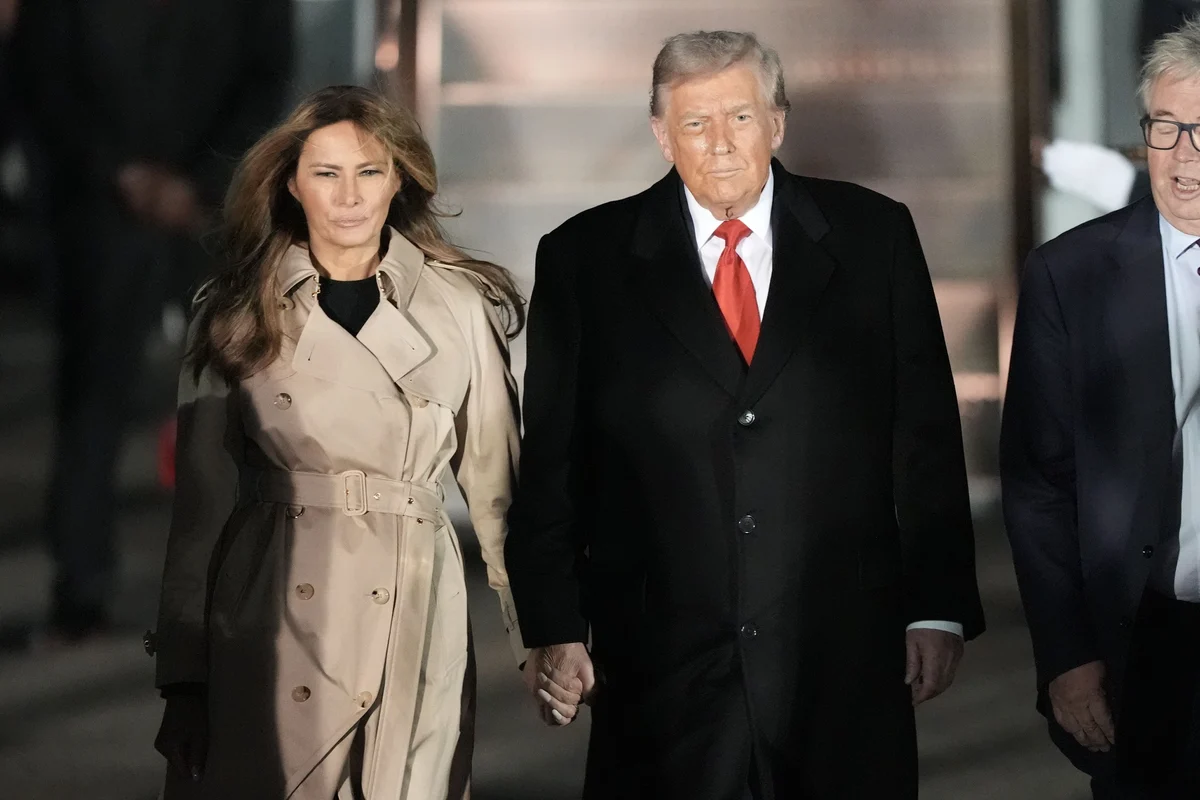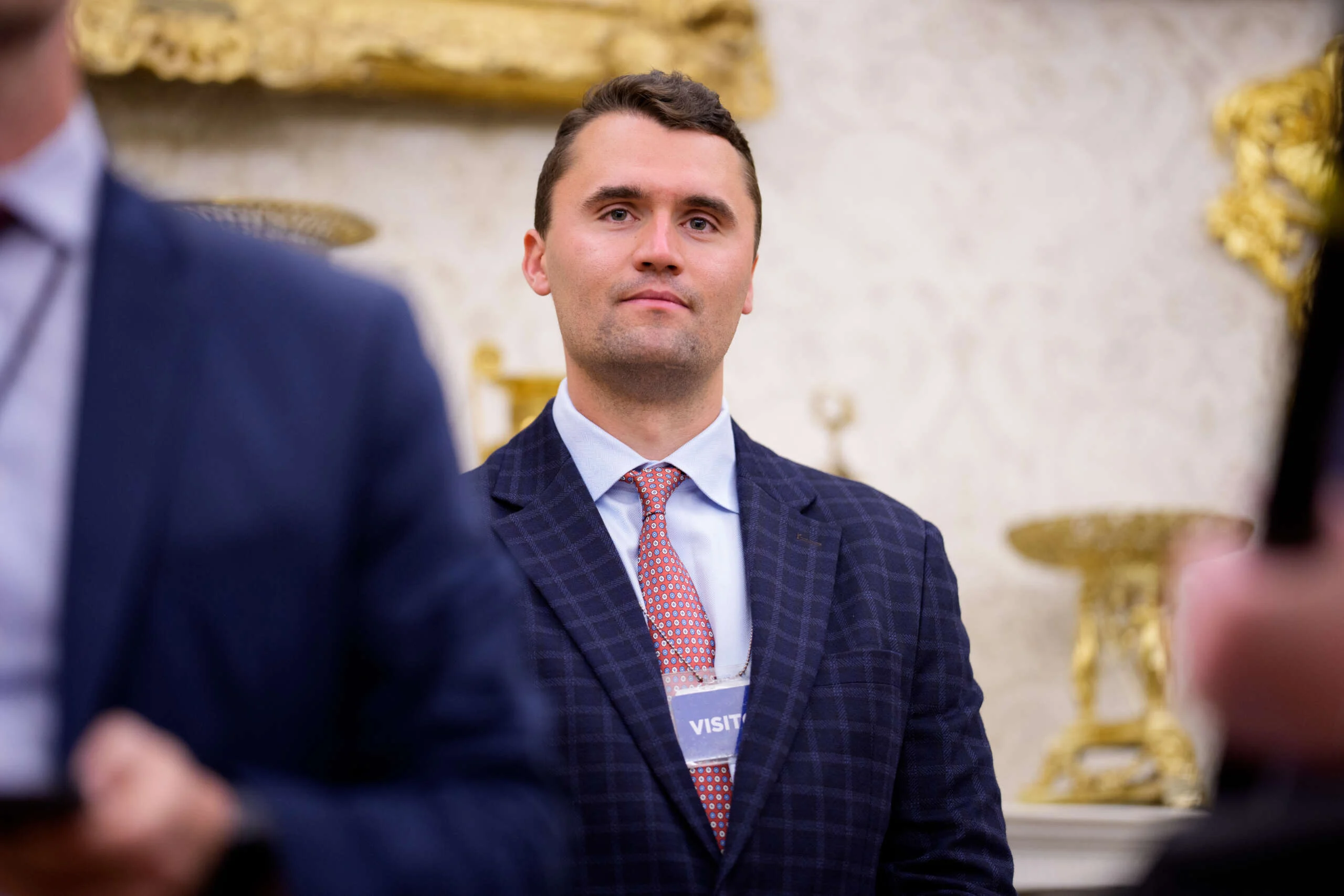
President Trump on Monday signed an executive order declaring antifa a “terrorist threat,” and designating it as a domestic terrorist organization, days after he called it a “MAJOR TERRORIST ORGANIZATION,” on Truth Social, urged its funding be “thoroughly investigated” and described it as a “SICK, DANGEROUS, RADICAL LEFT DISASTER.”
Despite his all-caps assertions, no legal authority exists for creating a domestic terrorist group designation, law experts say.
His executive order says it should be followed “consistent” with existing law and directs federal departments and agencies to use “all applicable authorities” to investigate, disrupt and dismantle “any and all illegal operations” conducted by antifa or anyone claiming to act on its behalf.
But there are no criminal or other statutes triggered by a domestic terrorist organization designation because no legal authority exists for such a designation, experts say.
“President Trump can say what he wants in a presidential proclamation, but it doesn’t trigger criminal material support charges or open up new surveillance authorities based on the designation,” said Mary B. McCord, executive director of Georgetown University Law Center’s Institute for Constitutional Advocacy and Protection.
“That doesn’t mean DOJ and FBI won’t try to use other authorities to launch investigations, but the designation alone doesn’t open up new authorities.”
Trump threatened such a designation at least twice before during his first term – singling out Portland protesters along the way — though nothing came of the comments.
In 2020, he tweeted that the U.S. would apply the label to antifa as racial justice protests erupted in the aftermath of the Minneapolis police killing of George Floyd, a Black man who died when a white officer pinned him to the ground while he was handcuffed.
In August 2019, he wrote on Twitter: “Major consideration is being given to naming ANTIFA an ‘ORGANIZATION OF TERROR,’ “Portland is being watched very closely. Hopefully the Mayor will be able to properly do his job!”
“Major consideration is being given to naming ANTIFA an ‘ORGANIZATION OF TERROR,’”
That remark coincided with an “End to Domestic Terrorism” rally in Portland as far-right Proud Boy activists from around the country descended on the city’s waterfront to condemn anti-fascists, or antifa, and pushed to have their adversaries designated as domestic terrorists. The rally devolved into running street battles between the rival factions. Police declared a civil disturbance and made more than a dozen arrests.
While federal law does define domestic terrorism, it’s not tied to any particular crime, said Tung Yin, a Lewis & Clark Law School professor.
Terrorist activities “involve acts dangerous to human life that are a violation of the criminal laws of the United States or of any State,” appear intended to “intimate or coerce” a civilian population or a government policy or “affect the conduct of a government by mass destruction, assassination or kidnapping” and occur primarily within the United States.
Current law allows the designation of only foreign terrorist organizations – and then only by the secretary of state, in consultation with the attorney general and treasury secretary.
For the most part, the State Department typically applies the designation, according to Jason Blazakis, director of the Center on Terrorism, Extremism and Counterterrorism at the Middlebury Institute of International Studies at Monterey, California.
However, the Treasury Department, under an executive order issued by former President George W. Bush, has slight wiggle room to designate domestic groups that are linked to a foreign terrorist organization, Blazakis said.
In 2001, Bush identified the U.S.-based Holy Land Foundation for Relief and Development as a foreign terrorist organization based on evidence that it secretly funneled millions of dollars to Hamas under the guise of charitable giving.
“Foreign groups only can be sanctioned as terrorist groups under U.S. law. That makes antifa a very difficult target to designate as a terrorist entity,” said Blazakis, who directed work in the State Department to designate countries, organizations and individuals as foreign terrorists from 2008 to 2018.
Antifa is an amorphous ideology and its adherents lack the cohesion of an organization.
“Antifa is more of a politics or a movement of the pan-radical left, militant opposition to the far right,” said Mark Bray, a historian at Rutgers University who specializes in radicalism and wrote the book, “Antifa: The Anti-Fascist Handbook,” a history of post-war anti-fascism. “It’s not a unitary organization.”
The decentralized, anarchist-influenced members often don’t have a lot of money or major donors, Bray said.
The International Anti-Fascist Defense Fund makes small contributions to people across the country, but usually on the order of a couple thousand dollars to help pay bail or buy gas masks or other self-defense equipment, he said.
Rose City Antifa, identified during ongoing clashes as the oldest known active antifa collective in the U.S. and Portland’s most recognizable left-wing demonstrators, was founded in October 2007, according to its website. The ad hoc coalition formed to shut down a neo-Nazi skinhead festival called Hammerfest, according to the site, which says it opposes “fascist organizing” and supports “direct action.”
Brian Levin, founding director of the Center for the Study of Hate and Extremism and professor emeritus of criminal justice at California State University-San Bernadino, said the hallmark of violent antifa adherents is their disorganization.
“They’ll often glom onto something bigger so that they can disrupt it, or quote-unquote ‘provide protection,’ even when uninvited,” Levin said. “The administration’s jawboning is incorrect on so many levels, including the relative threat, how these entities are organized and when violence does occur, how it takes place.”
Nonetheless, Blazakis anticipated earlier Monday that the Trump administration might try to somehow create legal avenues to designate a domestic terrorist organization and target antifa.
Congress could have been asked to change the law and allow the State Department to designate domestic groups, but that would have been legally fraught and run up against constitutional protections that guarantee the rights of freedom of speech and assembly, Blazakis said.
Issuing an executive order and bypassing Congress to designate antifa as a terrorist organization is likely to get struck down in court, he said.
Trump’s adoption of an executive order also raises many other questions, including who is covered and what happens now that the executive order’s designation is issued, Bray said.
The executive order describes antifa as an “anarchist enterprise” that calls for the “overthrow,” of the U.S. government, law enforcement and the nation’s system of law. It says it’s campaign involves “coordinated efforts” to obstruct federal law enforcement through armed standoffs with police, organized riots, violent assaults on immigration officers and routine “doxing” of officers and political figures.
It says antifa “recruits, trains and radicalizes young Americans” to engage in violence while going to elaborate means to shield their identities.
Bray said he considers Trump’s statements an attempt “to drum up a leftist conspiracy.”
The more common avenues to address domestic groups responsible for organized violence is through existing criminal laws, such as racketeering or corruption-related charges that are typically used against criminal organizations. They were recently used in Oregon to target the Hoover criminal street-level gang.
In fall 2022, a federal jury in Portland found two veteran Hoover gang members guilty of a racketeering conspiracy and murder in aid of racketeering after a five-week trial that drew more than 100 witnesses and accounts of killings, armed robberies, beatings and drug dealing over more than two decades in Portland.
Maybe one could make the case, Blazakis said, that antifa activists try “to intimidate or coerce a civilian population” or influence the government through intimidation, but a lot of antifa protests are either protected by the First Amendment or “it’s just violence and property damage for its own sake.”
Levin said there already are about 50 federal statutes that can be used to prosecute instances of domestic terrorism.
Those include conspiracy, racketeering, threatening public officials, threats, obstruction of justice, bias crimes or arson. Anti-government militant Timothy McVeigh, responsible for one of the deadliest domestic attacks in U.S. history, was executed by lethal injection in 2001 for the 1995 Oklahoma City bombing outside the federal building that killed 168 people and injured hundreds of others. He was convicted of murder of federal officers, conspiracy to use a weapon of mass destruction and destruction of a federal building. His co-conspirator Terry Nichols was sentenced to life in prison.
“The bottom line is we have a vast array of statutes that punish conduct that is undertaken in the advancement of domestic terrorism,” Levin said.
There’s a reason Congress didn’t provide for the designation of domestic terrorists, legal observers said, and that’s because it could be abused to punish people for their viewpoints rather than violent actions.
“I don’t know what the justification or deterrent value would be for having one, particularly when weighed against the substantial risks that we’ve seen from our national history itself, with the Constitution being abused under the guise of national defense,” Levin said.
Designating a group like antifa as a terrorist organization would have long-standing consequences once a Democratic administration is in office, as Democrats could seek to apply such a designation to violent far-right groups, including the Proud Boys or neo-Nazi groups, Blazakis said.
“There’s a lot of potential cascading downsides to such a designation that would not only impact the so-called far left but the violent far-right actors,” Blazakis said.



